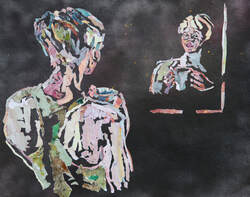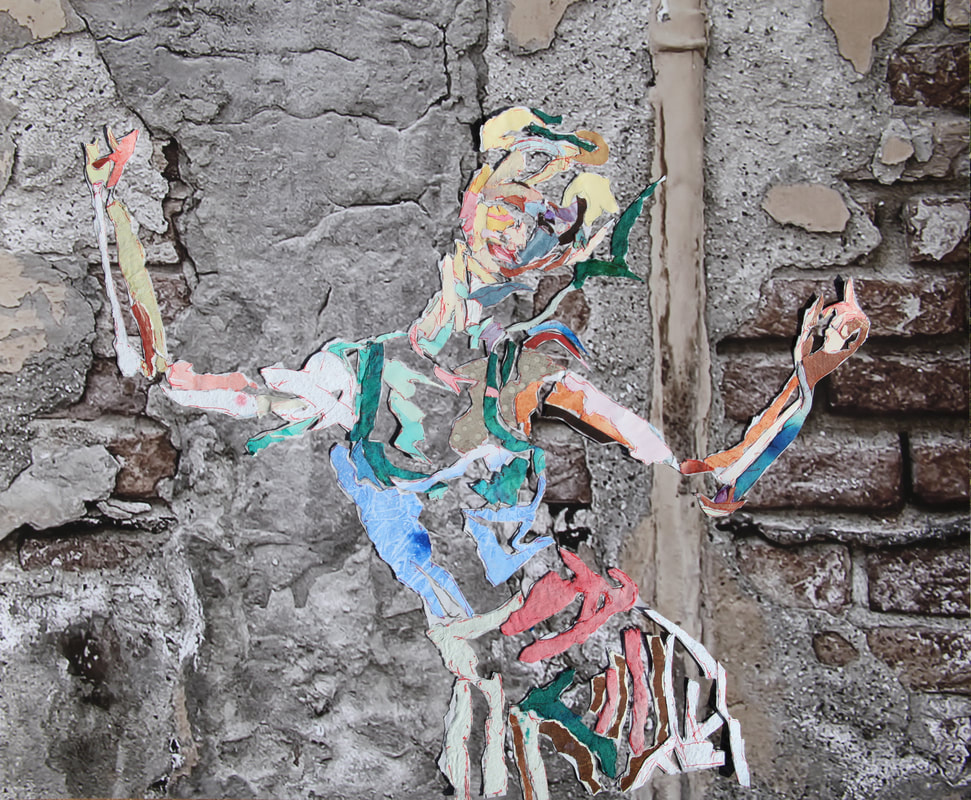 Drinking coffee in the mirror, ripped handmade papers on khaki paper, acrylic and spray paint, 110cmx142cm SOLD
Drinking coffee in the mirror, ripped handmade papers on khaki paper, acrylic and spray paint, 110cmx142cm SOLD
Title
Constellations
Year
2017
Location
Mrs F's, Keswick
Description
These works of torn fragments on paper are transcriptions of scenes from the novel, The Hour of the Star by Brazilian writer, Clarice Lispector. The novel, written in 1977, raises that ever-familiar question: can an artist both maintain their objective gaze and engage with projects that deal with real-world issues and inequalities?
“Salvation ultimately comes in the form of self-discovery and authentic self-expression” (Pontiero, 1986). Pontiero, Lispector’s translator and biographer, believed that catharsis for Lispector, came through the very act of writing. It was a form of release from the worry of how a society might value everyone’s efforts, rather than only those of a few.
Although the main character asks few questions about existence, (unlike her narrator who thinks of little else), she does have dreams (like buying face cream one day). It would be pointless to venerate her efforts with a grand oil painting. As the narrator explains, “Yet I have no intention of adorning the word, for were I to touch the girl’s bread, the bread would turn to gold – and the girl … would be unable to bite into it, and consequently die of hunger”.
“Salvation ultimately comes in the form of self-discovery and authentic self-expression” (Pontiero, 1986). Pontiero, Lispector’s translator and biographer, believed that catharsis for Lispector, came through the very act of writing. It was a form of release from the worry of how a society might value everyone’s efforts, rather than only those of a few.
Although the main character asks few questions about existence, (unlike her narrator who thinks of little else), she does have dreams (like buying face cream one day). It would be pointless to venerate her efforts with a grand oil painting. As the narrator explains, “Yet I have no intention of adorning the word, for were I to touch the girl’s bread, the bread would turn to gold – and the girl … would be unable to bite into it, and consequently die of hunger”.

